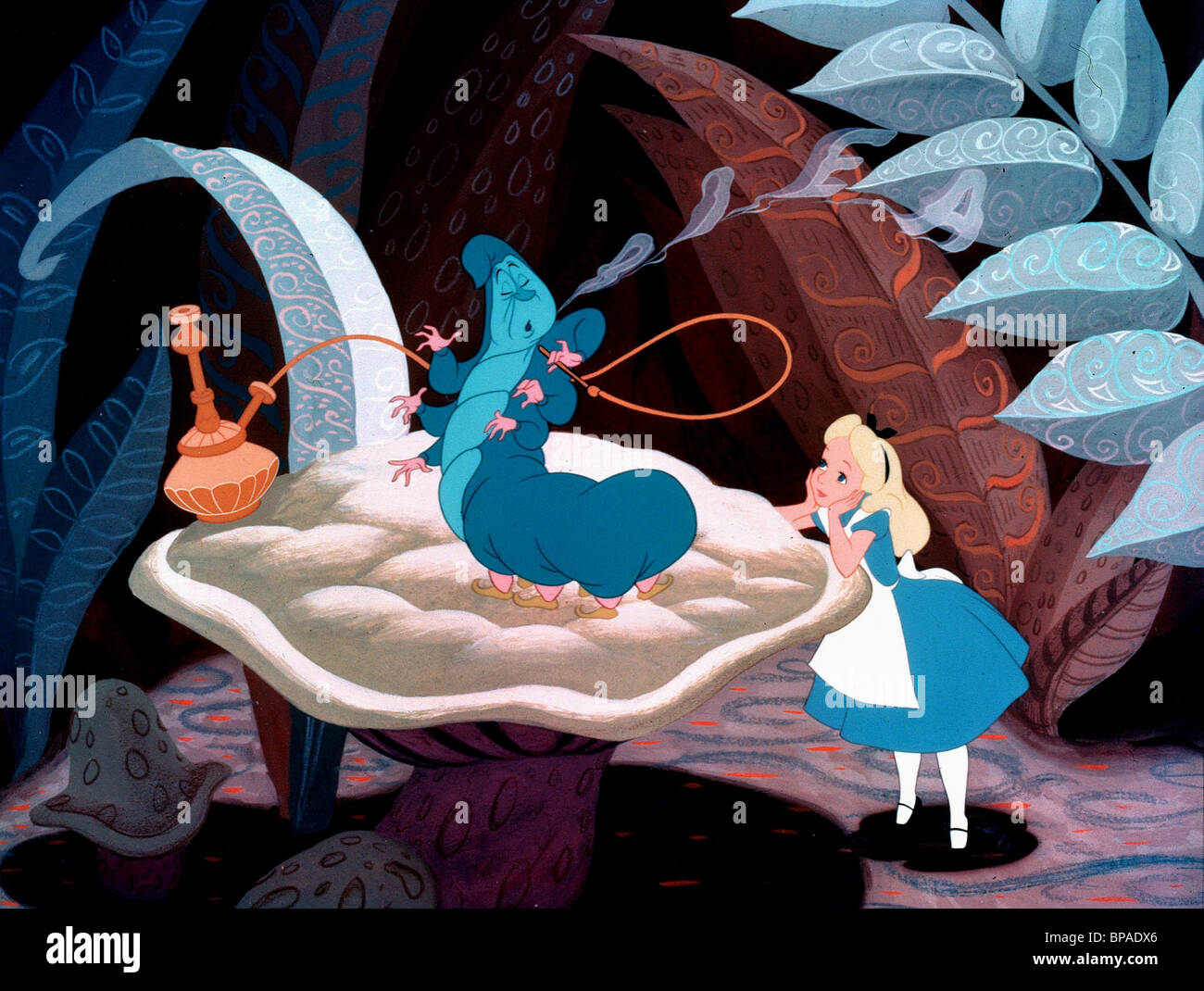Image text: @agnieszkasshoes: “Part of what makes small talk so utterly debilitating for many of us who are neurodivergent is that having to smile and lie in answer to questions like, “how are you?” is exhausting to do even once, and society makes us do it countless times a day.”
@LuckyHarmsGG: “It’s not just the lie, it’s the energy it takes to suppress the impulse to answer honestly, analyze whether the other person wants the truth, realize they almost certainly don’t, and then have to make the DECISION to lie, every single time. Over and over. Decision fatigue is real”
@agnieszkasshoes: “Yes! The constant calculations are utterly exhausting - and all under the pressure of knowing that if you get it “wrong” you will be judged for it!”
My addition: For me, in addition to this, more specifically it’s the energy to pull up that info and analyze how I am. Like I don’t know the answer to that question and that’s why it’s so annoying. Now I need to analyze my day, decide what parts mean what to me and weigh the average basically, and then decide if that’s appropriate to share/if the person really wants to hear the truth of that, then pull up my files of pre-prepared phrases for the question that fits most closely with the truth since not answering truthfully is close to impossible for me.
https://www.instagram.com/p/CvPSP-2xU4h/?igshid=MzRlODBiNWFlZA==
I’m old, but it took a lot of time to network/socialize. I know there’s books/material to socialize now. I have learned to grey rock, and just go neutral with giving a response to most situations.
This is a learned thing. No one teached us this back in the 80s or earlier. Life isn’t easy, we learn as we get older. Yes, it’s hard, but if some random person asks about your day, just say “great, how about you?”. Put the focus back on them. Let them talk. Just listen. Oh, their grandma passed away last week? “Damn, I’m sorry to hear that. Let’s remember her legacy, and know that she lived to her fullest.”
We are all still animals at the end of the day. You can make mistakes! Learn from them, and move on. Learn as you go.
deleted by creator
I believe that part of the problem - at least in my case - is that typical person immediately sees 3-4 possible generic answers to such questions.
For me… It’s like opening Pandora Box and have the brain flooded with not just answers but long chains of interactions, where none leads to anything positive. A “simple” question is like like an abyss that’s gonna suck you down and exhaust you while you’re trying to escape it so much, that you feel like lying down and trying to remember that air is meant to be inhaled again after it’s exhaled…
There was this scene in the original Terminator movie, where the robot sees the spinning list of possible answers to “cat question”. For me, this list doesn’t stop. Even when the conversation is already finished, the list continues to spin.
The “typical” person doesn’t see 3 or 4 answers, they have prepared a few generic answers to those small questions, and anyone can do that. Unless you’re really feeling different, and have enough intimacy with the asker to be honest, it’s just a game of tic-tac-toe that anyone can learn.
How are you doing? Fine, how’s life treating you?
Nice weather, eh? I’ve had better.
Etc.
Nobody is saying that neurodivergent people can’t do small talk, it’s that it is oftentimes a dreadful experience for them. You do understand the difference, yes?
It’s a bit like telling someone genetically predisposed to disliking cilantro because it tastes like soap to “just eat cliantro… everyone can do it!”
Fine, but beware of getting on the “I was born this way and I can’t change even if I wanted to” train. That’s extremely harmful to your personal growth, because even if you were truly different genetically, it can be used as an excuse to not learn or change, even if you were capable of it.
And where in the game is the free will to simply not play the game? Shouldn’t that be an option as well?
The thing is I can do small talk, it just costs a lot of energy that I’d rather use for something more important. And I honestly don’t see a reason to mask all the time and pretend I’m not who I am.
While I might mask in short interactions with strangers I refuse to do it with people I know. They’ll have to accept me the way I am. And that, in fact, is personal growth as well. To accept yourself the way you are and stop pretending to be something you’re not.
Fine, but…
You could have just admitted you were wrong and move on but you had to say something else to save face.
This comment gets under my skin because in this community for autistic folks we have heard this kind of thinking our e-n-t-i-r-e lives and NT never ever ever ever understand just how much effort it takes for us to mask in order to fit in with their arbitrary ass rules that we consider hella dumb. I long for the day when a NT person comes into communities of autistic people and says, “wow, you know what, all this you’re saying makes a lot of sense and this social protocol IS hella dumb and doesn’t actually serve any valid purpose and I’m with you! I’m going to help out and join the movement to making society more accommodating to different brains preferred way to be, instead of assuming like everyone always does that the way society is is by definition the right and only way it should and could be.” How about calls for personal growth that aren’t ableist and full of unexplored privilege and ignorance about what masking actually does to us. Because I’ll tell you right now that it is 100,000% devastating and the fact that many of us are keeping it together enough to survive is FUCKING MIRACULOUS and we honestly deserve monetary awards and rest and a fucking break.
Thank you for saying what I was trying to express and just couldn’t. It hurts so much to be told “just act like ‘normal’ people so you don’t seem to be ‘disabled’”. We’re not disabled, just different!
I’m disabled. I can barely deal with normal amounts of noise. Banning cars and ads would go a long way to making me less disabled, but unfortunately I just have a lower tolerance for attention violence, and we live in a society of frequent attention violence.
The “typical” person doesn’t see 3 or 4 answers, they have prepared a few generic answers to those small questions, and anyone can do that.
Having a few generic answers is the same thing meant by “seeing 3 or 4 answers”.
Then it isn’t that hard to do, right? There’s no innate talent to it, just plain memorization.
I agree. That’s exactly what I do. Memorize two or three different socially acceptable answers to each of the half-dozen or so most common “human vibe check” questions.
Because that’s exactly what they are. They’re human vibe checks. It’s not about finding out how you’re really feeling, or what you honestly think of the weather. It’s about being a quick way to sort out who is capable of of functioning in a social capacity and who isn’t, without putting in a lot of time and effort doing an in-depth screening.
“Small talk” is culturally designed to weed out 70-80% of those people who are likely to be dangerous, unstable, or unreliable, allowing us to know who we need to pay close attention to in our environment and who we probably don’t. It’s not a question of “lying” or “telling the truth”, it’s a question of “can you perform your socially expected role in this cultural ritual?”.
Saying “I’m fine, how are you?” is no more “lying” than doing a safety check on an airplane you’re about to fly is (because you don’t actually need to engage the flaps right now, being on the ground and all). It’s just about checking to make sure the right lights come on and the right motors engage. If a person can’t even answer a question they’ve had decades to prepare for, and can’t engage, even to a minimum acceptable degree, in a small social ceremony they’ve watched thousands of times and had hundreds of opportunities to practice themselves, that’s a bad sign. That’s like trying to engage the flaps and hearing some weird grinding noise and getting a red blinking light on the console.
It’s important to note here that I have a bit of an advantage in this arena over a lot of the rest of the community. One of my deepest autistic hyperfocus areas has been observing, experimenting, and collecting data on human interpersonal communications, specifically linguistic communication. It’s all very ritualistic, at its base, and it’s easy for me to create, memorize, and practice the scripts for performing those rituals in different contexts. And when I fuck one up, I can go back through and memorize another script so if that same conversation every comes up in the future (and it will, because there are only so many rituals!), I won’t fuck it up again (to the same degree).
I agree with this. Observe carefully someone who you deem a master of small talk, and you’ll notice it’s not intellect or genius, but patterns of small non-answers they’ve learned to use as conversational support.
“Small talk” is culturally designed to weed out 70-80% of those people who are likely to be dangerous, unstable, or unreliable, allowing us to know who we need to pay close attention to in our environment and who we probably don’t. It’s not a question of “lying” or “telling the truth”, it’s a question of “can you perform your socially expected role in this cultural ritual?”.
I find that the best and worst people are really good at small tall. The best people use small talk to establish relationships and ease into more personal topics that they honestly care about. The worst people use small talk to establish a connection that they can abuse later on.
It doesn’t weed out anything but honest people.
It doesn’t weed out anything but honest people.
That’s like saying a pre-flight check doesn’t throw up errors on anything anything but honest machines. But, more to the point, you’re right, in the sense that the people on either tail end of the “good/bad people” bell curve aren’t going to be precisely detected by a simple test of inclusion/exclusion criteria. The ~60% of people in the middle will be. That’s why it’s a screening tool, not an in-depth socio-psychological exam.
As long as your honesty comes closer to filling the socially expected role than, say, a man who’s high on meth or a Qanon conspiracist who thinks “how are you?” is a sex-trafficker code, you’re probably ok.
The ability to follow social rituals like small talk, handshakes, bowing, making small offerings, etc. doesn’t screen anything for the people in the middle of the bell curve other than the knowledge of and conformity to social rituals.
What is the benefit of screening people through social rituals?
For me personally, I’ve been able to “learn” to respond with a few generic answers but that still doesn’t change the over analysis after the fact.
Did I seem genuine enough? I wish I could tell them how I really feel. Why bother responding if it’s a lie? I hate lying. Etc.
So yeah outwardly I appear to be good at small talk. (Heck I even worked sales for a few years) but internally it’s draining.
Believe it or not, that is plain emotional intelligence. Over analyzing can become a vicious circle, but most therapists will teach you ways to escape the dreadful scenarios in our heads, and ground yourself in the real world.
If you are asking this question you haven’t read enough of the responses to this post. Consider refraining from commenting until you have read more and listened and reflected on the experiences of others different from yourself.
No, I will not consider refraining from replying just because you don’t agree with my comments. I’ve replied to plenty of comments to explain my point of view, to show it’s not a superficial opinion. Don’t pretend to discuss by trying to silence your interlocutor.
You can always block or report me if you must, just don’t try to pass that attitude as dialogue.
Yeah I understand how my phrasing would make anyone feel defensive. Maybe you might attempt to understand why the phrasing you used in the comment I was replying to might trigger someone to want to tell you that.
First downvote on Lemmy because it’s simply not true. To some people, smalltalk does come naturally.
Also, having “a few generic answers” does not solve the problem. The mind still fills with way too many thoughts.
Most of us neurodivergent people consider ourselves smart and observant. Observe those who you consider small talk comes naturally, and see how they fall into patterns. They’re more elaborate that a non-answer catalogue, but they’re still crutches to make ease the friction.
An acquaintance of mine, for example, tells jokes. Some times they bomb, but he doesn’t sweat it, they’re still ice breakers. Another acquaintance immediately gets the attention of nearby females by retelling one more how he went randomly backpacking across Europe as a poor, young musician. If that doesn’t work, he has other, equally entertaining tales, which we have few ways of fact checking, ha ha.
But for us small-talk-stunted people, clever non-answers are a perfect crutch to fend off the awkwardness until we acquire this skill, and we can always refuse small talk if we’re not in the mood.
anyone can do that.
…
Imagine that somebody places before you a dozen baskets all filled with white balls the size roughly of a ping-pong ball.
They are all identical. There’s no way to discern one from another.
Then he says: pick the right ball, but be warned, picking some among them will result in a member of your family dying a horrible, gruesome death. Now choose, you have 20 seconds.
And then he switches off the light.
That’s how it is.
That’s not how it is, you’re comparing a Saw movie with small talk, talk about hyperbole.
You can always say “I don’t feel comfortable with small talk” if you don’t want to make the effort of making your own quick-answer list, and no loved one of yours will die because of that.
It’s hyperbole yes, but there’s a kernal of truth to it.
Consider that this conversation is one example of the hundreds of examples ND people experience every single day for how they are asked to mask their initial reactions/responses/preferences for seemingly arbitrary meaningless reasons “just because” that’s how it’s been done and no one wants to care about how it impacts us day in and day out.
Consider how it is a cumulative effect that builds up. Frustration, embarrassment, confusion, annoyance, sadness, hurt, yes even rage at the stupidity and injustice of it all.
These are the emotions ND people in your life are experiencing every day all day as they go about trying to survive and fit in in a world that is constantly telling them that they are wrong for the way they instinctively react to things and their preferred ways of being and interacting are not only weird and wrong but somehow disturbing and put a target on their back for disrespect or worse, bullying, being ostracized, fired, or targeted for harassment.
Try to think about that before responding. Really think about what that would be like for someone to live with every single day in every interaction with other people.
Oh, they can pretend. They can pretend so freaking well that loads of people have ZERO idea they are experiencing any of this. They just see them as a little shy and a little weird. A loner. Creepy maybe. Or maybe they are so good at masking you don’t even see that. You see a happy friendly person. Meanwhile inside they are so fucking tired.
All of these stupid little dances we have to play in order to be accepted. When being ourselves, why would that be so bad? It doesn’t make any sense. But whenever we try to unmask, society very quickly shows us that is not acceptable.
Since I think no one will see my comment at the bottom of the OP im going to reply it here as I think it’s relevant to your content.
For me, in addition to this, more specifically it’s the energy to pull up that info and analyze how I am. Like I don’t know the answer to that question and that’s why it’s so annoying. Now I need to analyze my day, decide what parts mean what to me and weigh the average basically, and then decide if that’s appropriate to share/if the person really wants to hear the truth of that, then pull up my files of pre-prepared phrases for the question that fits most closely with the truth since not answering truthfully is close to impossible for me.
I’ll be honest, it really feels like you’re overanalyzing it. You really can just say you’re fine and go about your day. You don’t need to analyze your day or even know how you’re feeling at the moment.
There’s a couple different issues at hand here. There’s the social protocol being stupid and annoying part which is what I think you’re referring to. I don’t analyze my day like that with a stranger like a retail worker, or anyone at work. I know the social protocol. I just think it’s a dumb game and I don’t want to play.
Then there’s another aspect which I was thinking about when I wrote the above comment. I was thinking about how even with dear friends, even with my partner who truly want to know how I am, I personally get tired of the question. And maybe that’s unreasonable of me, and I know they mean it out of kindness and love. But it can feel formulaic, like ok are you just initiating a conversation and therefore don’t need the full answer or are you really truly asking? Because when I know someone cares about me and wants to know that’s when I feel like I need to run the above algorithm.
But chances are when people ask me how I am, honestly I’m probably dissociating right now in order to not be overcome by how exhausted and burnt out I am just trying to survive. So a. I don’t really know how I am most of the time unless im in the middle of an emotional experience. And b. I don’t really want to go and pull all those emotions up and relive them in order to analyze the words to summarize and describe them. That honestly makes me feel worse.
So what I wish I could figure out how to communicate to my loved ones is that I will tell you what I want you to know when it occurs to me to say it. And if you want to connect with me and talk to me, why don’t you just tell me what’s on your mind? What are you feeling if you have any feelings, or what are you doing? Or what’s your current interest? Literally anything. I always want to hear from you and listen to what you’ve got to say and let the conversation grow from that. Because that’s how I approach conversation. I just start talking to you about whatever it is I’m thinking about. If I just feel the urge to connect with someone I haven’t spoken to in awhile, I’ll usually say something like “thinking of you, hope you’re well” because that’s literally what’s happening to me right now.
For me when I’m asked how are you? It feels as much pressure as a phone call. Like, please don’t call me! It’s such an imposition demanding attention immediately. I much prefer text so I can think about, draft and edit my response, and respond when I’m ready on my own time. So same with how are you? Like maybe I don’t want to think about that right now. Maybe it’s painful to think about how I am. Maybe I’m not ok but I’m just a saran wrap covering of keeping it together. So talking about it directly is too risky. But I want to talk to you.
Anyway, I can go on and on so I’m going to stop treating this like betterhelp. Hope some of that helped explain why I said what I said although I’m betting probably not. I think something you might have missed was that the post was intended for discussion among those who feel similarly, and really not asking for help. Because there is no help. It’s just the way it is. We understand the social protocol, we just would prefer it to be different and find the whole charade to be one of the hundreds of daily ways we feel othered by society, showing us we don’t fit in, which is often very unnerving and/or frustrating. And when you are feeling those things every day in every interaction with people, it’s a cumulative effect. Ok I’m stopping for real
Yes, exactly this. I don’t know how I’m fucking doing, don’t ask me that question, I don’t want to know.
I just answer honestly. I don’t have time to be a fake person.
Yeah you can answer however you want just keep it short
My problem with this is that while I don’t like lying I also really don’t want to talk about my personal problems with someone I’m not intimately close to. So honestly, I would prefer if people who aren’t close to me don’t ask the question in the first place.
Like I’m not going to tell you that I’m having mental health issues this week and I’m about to lose my shit because everything feels overwhelming and I’m not sure it’s worth it anymore. So no I’m not really “getting through it” right now. But it also is going to be very challenging for me to lie to you right now also.
So maybe don’t presume that we have the right to that information in the first place and just say something in greeting that doesn’t require someone to divulge, honestly or not, private information about themselves.
I’m going to try to implement a “Hi, hope you’re having a nice day” instead of how are you to people I’m not close with in practicing this.
Same. If someone doesn’t want real answers then they shouldn’t bother asking.
You can be honest in this society if you are exactly average and have no opinions others would dislike. :)
It’s not that bad. Only if it’s really important to you that noone dislikes you or are bothered your opinion. Unless you have some seriously inflamatory opinions it’s not the end of the world.
I’m not neurodivergent, but small talk is fundamentally a conversation with no other purpose than to maintain, build and express social relationships. There’s no substantive information being passed. So I guess it is a concentrated dose of some people’s worst nightmare.
By the way - there’s nothing wrong in a brief truthful answer if you a feeling a bit down, or you pulled a muscle in your neck or whatever
By the way - there’s nothing wrong in a brief truthful answer if you a feeling a bit down, or you pulled a muscle in your neck or whatever
That’s how it should be. Unfortunately, there’s a fair amount of people who take your honesty as a direct affront to them. After all, how do I dare to say I’m not doing so well? At that point, the socially acceptable thing to do is to display some empathy for me, and they don’t like me enough to put that effort! I shouldn’t have strayed away from the script!
The question is if it’s important to be socially acceptable. I personally don’t think it is. I’ve stopped holding back anything or “lying” like mentioned in this post, and sure I rub some people the wrong way, but why would I care? I just don’t associate with them in that case.
I have the tendency to do the same, but that’s because my circumstances allow me to. Your capacity to choose whether or not you’re going to interact with someone in the workplace or at school is pretty constrained in a lot of places.
I’ve never had that happen to me. I’ll cheerfully say ‘feeling a bit rough, how are you? And I’ve never really had people take affront. … that I’ve noticed 🙂
deleted by creator
It doesn’t, and it doesn’t intend to. Small talk is meant to give small doses of information about the other person, which may or may not be used in subsequent interactions. For instance, a brief exchange of comments about the state of the climate is not so much about whether it’s raining or not but to gauge the tone of the other person and their facial expressions, from which other information is inferred, correctly or incorrectly.
Which brings us to the next point: small talk sucks for autistic people not only because its utility is concealed to us, but because most allistics are going to misinterpret our nonverbal cues by comparing them to the cues of other allistic people.
Thanks! Your explanation helped a lot!
It says ‘we are of the same tribe, we understand the same conventions’, I’m non-threatening
It’s the equivalent of chimpanzees grooming or us British offering to make someone a cup of tea - it’s not because we think the person is thirsty.
It made more sense when I started thinking of humans as animals. In that context it’s like dogs sniffing butts or ants touching antennae when they meet. I eventually settled on a few generic responses that felt less fake than “fine” (idk why “fine” rankles me so much but “not too bad” doesn’t, but eh) but didn’t elicit further questions, and that made it slightly easier.
For me, fine would be my preferred generic response to these questions because that’s generally how I actually am.
To me, good means actively happy. But generally speaking I’m more neutral. If there’s nothing that has made me actively happy at that moment, and I’m also not actively annoyed or upset about something, then I’m just existing, neutral.
But people tend to question you when you do that. “Fine? Not good? What’s wrong?🤔🥺” Which is annoying because I thought we were playing the game where you ask a question you don’t want the answer to… But they want you to answer in very specific socially acceptable ways and fine is apparently negative to NT.
My favorite response is in Russian. Im Not Russian and don’t even know if this is actually culturally accurate but being taught Russian in America we learned: “как дела?” (Kak Dela?- how goes it?) “нормальный” (normal’nyy - Normal¯\_(
~)_/¯)Does “Fine, thanks, and you?” sound negative to native English speakers? That was the standard phrase we were thought since primary school as the standard response to “How are you?”, so it’s surprising to hear that it’s not the standard response (maybe it’s a US vs UK thing, since I was thought British English at first). relevant video
My answer in Turkish “Aynı” (the same) when asked by friends and family sounds similar to the Russian answer you mentioned. Also it’s more acceptable in informal settings to give an answer like “yuvarlanıp gidiyoruz” (literal translation: we’re rolling; actual translation: it’s going) or “sürünüyoruz” (“we’re crawling”, but a more relevant translation would be “struggling”).
“Fine, thanks, and you?” Sounds fine (ha) I think but “I’m fine” leaves a lingering doubt like you’re holding back from saying something negative for some reason. And heck, maybe I’m the only one who was harassed for saying that, but I get this anxiety now every time I’m inclined to use it that the person will ask me what’s wrong that I avoid it to my own annoyance.
I love learning languages, thank you for sharing the Turkish! That’s really interesting
Serious question from a non neurodivergent. Why don’t you tell the truth? What’s wrong with that?
Sorry, just for me to understand because I have no experience
Imagine if you’re working as a cashier and you say to your customer, “hey, what’s up?” and then they start a ten minutes monologue about everything that’s happened to them today and how that’s made them feel. You’re just sitting there like “I’m at work, I’m just being polite, you’re holding up a line of customers, I’ll get in trouble with my boss for being so slow, etc.”. All you wanted was for the customer to say “Yeah, you?” and move on.
In the UK and America, and probably most places, saying “how are you?” or “what’s up?” is the equivalent of saying “hello” or “I would like to start a conversation with you” – it’s very rare that you actually want to know about the other person’s day. For a lot of autistic people though, we take those questions literally.
Edit to add: you can’t always assume that people don’t care about how you are. Got in trouble with my doctor for just saying “fine” when he was actually asking what is wrong with me. So it always feels like you have to make this calculation of what does the person really mean? I understand that neuro-typical people just sort of magically know the context in a way that autistic people don’t - I think it’s just a lived experience where we both have to say “I don’t understand how that is, but I trust that it’s the way you experience things” and move on.
And what’s the problem to always reply “not too bad”, as if it was a normal greeting? Why is it difficult?
Again, asking to understand
@Zeth0s @Worx “not too bad” is what i do (where “too bad” implicitly means death)
unless i’m receiving a call in which my response is “what’s up?” which is ambiguously either (a) responding to a meaningless pro forma question in kind, or (b) expressing immediate interest in knowing what the call is actually about
I just added an edit that addresses exactly that as you were typing :p
The truth is that neuro typical don’t even consider the context. We say something along the line to “not too bad, and you?”. We just know that doctors and parents want a longer more detailed version.
To doctor the longer version, to parents the diluited version (otherwise they get worried).
Basically this is the rule. We think of it as a synonymous of “hello”
Then why don’t you just say hello if you meant to say hello?
No idea, even hello what does it even mean? Just an empty word to exchange the information that you recognize the other person and that you don’t dislike them.
Any combination of sounds recognized by the interlocutor is fine for the purpose.
One can say “hi”, “what’s up”, “how is it going”, “how are you doing”, “ciao”. Each of the has a combination of sounds expected as response to understand that the interlocutor doesn’t dislike you as well. For the “how is it going” “what’s up” type of greeting, response is “not too bad and you?”.
It is just how language evolves. Someone found “hi” was outdated, and moved to “what’s up”. I guess gen z moved to something else again.
@Zeth0s @SRo it’s because we fundamentally process language and interactions in a different way, our brains aren’t wired for “small talk” or non-meaningful communication. Also the example earlier of context mattering where sometimes they might be asking with sincere interest and it can be catastrophic to fall back on a pattern like that.
And that’s simply because we’re either following an unnatural pattern that we’ve jury-rigged together from years of painful trial and error or we’re thinking much harder about the words being said than you are.
We call this masking and it’s a severe drain on our mental resources every single day and it’s why it’s claimed that we have a social problems (claimed because those problems completely disappear when interacting with fellow autistics, they’re considered problems only because the majority expect us to do all the work of accommodating them and none of the work themselves).
Also, hi/hello are different from “what’s up?” and “how’re you?” despite being used the same by allistics (non-autistics). Hello is purely an acknowledgement, it doesn’t even need to lead to a conversation, it’s just basically saying “I know you are there and recognize you as a person”.
Think of it like this: if you’re in a dark house and hear a sound… do you say “what’s up?” or “Hello?”
The others are formalities, evolved originally from real interest eventually into empty phrases. It has a lot to do with how allistics connect socially vs autistics.
We’ve recently begun to unravel the fact that allistics connect their social interactions and relationships to their identity while autistics connect values and actions. Because of that, I believe allistics put a lot more meaning into the form of an interaction than into the actual things accomplished in it.
“How’re you?” was originally an expression genuinely asking someone about their day, a genuine expression of caring. However, since it became associated with caring it eventually became a formality, a shape of conversation in which “Hello” became seen as cold and uncaring… so everyone changed their patterns of speech for it and felt it much warmer… despite dropping what actually made it warm.
Us autistics however, we often struggle with casual lying because we care intrinsically about our actions, even the small perceived as meaningless ones. When we ask how someone is, we have the intent of asking that question.
Small talk is all about the “form” of the interaction. It’s tied to allistic identity in that allistics typically seem to define themselves by the forms of their interactions. Autistics however couldn’t care less about the form if nothing actually happens in it because we tie our identity to the actual things happening.
An allistic might consider themselves caring if their interactions take a caring tone and form… and they’re often right (but not always, there’s always that person everyone humors but can’t stand). An autistic however might consider themselves caring based on the individual elements of the conversation, what was actually talked about and what happened during the conversation (ie. the person opened up, became less stressed, you got an update on what was going on, you were able to share inspiration, etc)
This is a highly cultural thing. Where I live, cashier (great example) are told by the manager to not speak with the customer. The interaction is just “Hi!”, the price, “Thanks! Bye!”.
It’s just respect and politeness. I don’t practice small talks at all. People don’t care about it. It’s not their business.
To illustrate, how it is here. People don’t make friends outside secondary school or universities depending on the degree they have. I know people who still have the same friends for 50 years. People are not open.
Maybe cashiers shouldn’t ask questions they don’t want the answers to
The truth about how I am? Because they don’t care. They don’t actually want a long infodump about personal details of my life.
Because people get weirded out and start to exclude me when I start a 10min monologue on my emotional state and life situation instead of “I’m fine, thanks”
Try this one: “I’m fucked up, you?”
No need for a monologue, just go tit-for-tat. If they care, they’ll keep talking, if not, then no loss.
@[email protected] @[email protected] @[email protected] I try to change it up, legitimately like “Are you hydrated?”
Some of these are more confounding than “how are you?” (are you… implying my heart is not… like … red?) but asking actual questions to greet people is a really nice thing that I’d love to see more widely adopted:
The Truth? About how I am? How the heck am I supposed to do that? I suppose I could tell you my general level of energy. I could tell you the character of my thoughts and what sort of things caught my attention recently. I could think back to when I last had a clearly identifiable emotion, what I was thinking at the time, and if it’s still relevant. I could tell you about physical sensations in my body - do I feel tense, is my head clear, is my pulse elevated, are my ears ringing, how grounded do I feel? Or how I’m experiencing the outside world - how is the temperature, the humidity, the light, the noise? I could think about things that happened recently, or where I am now generally in life, or my worries or ideas for the future, and does any of that relate to how I am in the here and now. And eventually, maybe, after far more intimacy and far more uncertainty than you’d likely be comfortable with, I might tentatively offer some emotional label as to how I am.
Can’t vouch for its accuracy tho. I just inhabit this brain, I don’t know everything that goes on here.
But what about a general mood. Are you able to recognize one? Like “today is a sh*tty day” or “I feel good because I’ve eaten an ice cream”. Just to understand
Sometimes. Generally no. Not without the work I outlined above.
As I understand it, people usually have an innate sense of affect - their general energy level, and valence - how positive or negative they feel. More specific emotions are basically narratives - I feel X because Y and that’s called Z. Well I can sense my affect, but my sense of valence is pretty murky most of the time. So coming up with those narratives is hard work, and I rarely have much confidence in them.
(Oh, and please don’t take this as a general guide to ‘what autism is like’ because, 1) I’m not diagnosed, and 2) autistic experience is very diverse)
Your descriptions reflects my experience quite accurately (and I am diagnosed, AuDD). I usually try to be vague on purpose when answering how I am, or give non-answers (such as “I [simply] am”).
It’s just a greeting. The proper response is “fine, and you?” The person will dig deeper if they wanted a bigger answer.
I live in Sweden. If you ask anyone here how they’re doing they will give you a detailed account of how they’re doing.
It was really confusing for me when I went to the US and I had to tell every store employee about my aching back due to the hotel having a soft bed and the cold I got from the airplane AC.
I think it comes up to the culture you’re in and the specifics of the situation. I often hear the question asked on call in shows from the US where it seems most people say it as basically a greeting, not always pausing for a response before continuing. In my own culture we don’t ask as much and usually only of people we have a bit more of a connection to. I imagine that the cultures represented in the talk shows would pressure one into answering in a way that doesn’t hold up the conversation. This also applies when you are already exhausted, the reasoning there just being that an honest answer will prolong the conversation and probably require talking about emotions which at least to me can be exhausting on its own.
Because no one wants to be trauma dumped on, especially when they don’t have a way to escape (working).
Because it will make people uncomfortable and we will be scolded or face negative consequences at work
Then the standard answer to not answer is “not too bad, and you?” <wait for answer, ignore answer>, finally: “Nice to hear, see you!”.
That’s it, it’s like “hi” “hi” “bye” “bye” but longer
Yes I know, this is the lying
In Italian goodbye is arrivederci, that literally means “see you”. You are not going to see again a random guy at a highway gas station. Still the greeting is “see you”. This is how language work. Use of certain sentences evolves. It is just an agreement between parts.
“how is it going?” “not bad, and you” “not bad” “nice” “see ya”.
The meaning of the sentences is hi hi bye bye. No lying, both know the meaning, because someone thought them. When I went to UK someone explained me, if someone want to learn how it is done where I live, I’ll explain them. The goal is to demonstrate that people don’t dislike each other. How it is done is a cultural agreement
Your comment and responses feel a bit odd. They feel a bit antagonistic even though you acknowledged this space is for autistic people.
For me, I’m like how OP stated. Every time i am asked i have to analyze my day, compare it to past days, try to figure out how I feel (try doing that while also being alexithymic), and if I am overstimulated then that adds another layer of restraint because people do not want someone to say something like, “REAL GOOD!! DID YOU KNOW I JUST FOUND OUT THAT—” and go on a tirade for 5 or 10 minutes about the new hyperfixation or interest we have.
I also have a hard time lying. I don’t see the point of it. Why lie about my day? And if the answer is non important, why ask? It makes no sense to me. And keep in mind you are using an Italian example and mine is American. Two vastly different cultures and expectations.
Sorry I looked antagonistic, I was just here to chat. I didn’t see the community I was in, really. I saw the post on all feed and I wanted to engage.
That post is how I explain things. I am a bit pedantic unfortunately. Didn’t want to hurt anyone.
Also, if it helps, I would be very happy to hear 10 minutes about a topic someone is interested in. I like passionate people. I actually feel sorry for people who don’t talk passionately about something.
You can say “it’s going”, or “ehhh”. You don’t have to lie, just don’t dump all your problems on them
If I don’t go with a standard “Fine, thanks” I’ll go with “Better than most, not as good as some”. It’s not a lie, but it’s not saying much.
Yes we understand that but the point is that ND folks don’t automatically know which version is appropriate. Our brains tend to go through an algorithm manually each time, where NT people are much more automatic like you’re suggesting. It’s like if someone with executive function issues like in ADHD and autism told you they struggle to remember things and you tell them to “Just write it down” or “just put it in a calendar 😀” as if this is some kind of new trick they haven’t thought of. This is one of hundreds of daily examples where ND people have to manually go through the mental list of appropriate social protocol that for NT is just somehow magically instinctual.
The point of this post is to highlight one of the many ways that things are more difficult, challenging, exhausting, annoying, frustrating for ND people. This post was made in the autism community to commiserate with other ND people and discuss amongst ourselves, not to educate NT people.
But since I am procrastinating at work and have the spoons, I’ll take a stab at helping you understand. But I would appreciate if you would recognize the imposition you make coming in asking to be educated.
Imagine if for every thing you did all day you couldn’t remember how to do it or even what to do when and instead had to manually pull up a check list of steps to take to accomplish that thing, but also the pencil you used to write the list has been smudged so you can’t really read everything on the list, and when you wrote the list you misunderstood the instructions so the check list is unreliably correct. And the check list has sub points so if this then that, else this other thing. So every thing you need to do every day of your life instead of being automatically pulled up subconsciously by your brain and just done, you had to go through this list and figure out each step new each time.
For ND people, to varying extents, this is how we live for real. And it adds up in impact, but we don’t get a break. And when you’re already overwhelmed and exhausted, each time you have to pull up the checklist and figure out what to do you get worse at it. And it’s stressful and embarrassing to have to check the list each time, especially because often times you mess it up because you can’t read every line clearly or you wrote it down wrong last time.
There’s no solution, there’s no tips or tricks to help. There’s no medication to fix this problem or skills we can learn to make this problem go away. It’s how our brains are wired. We would rather live differently. But we live in societies that have chosen not to educate themselves about different neurotypes and refuse to accommodate any differences.
Instead the “weird” guy at work who is too quiet but then goes off on a coworker because they didn’t follow some stated rule off the workplace, that everyone knows don’t actually matter even though it’s never been said out loud, and why does he have such a stick up his ass, what a loser let’s be mean to him now because he’s obviously not deserving of our understanding or respect for being such a weirdo.
Or that coworker who wears headphones at her desk and is always calling out sick from work. I heard she asked to work from home, who does she think she is? how lazy can you get amirite? Something about being distracted by noise and The overhead lighting, she needs to suck it up! We all get by just fine, why can’t she? And we like chatting with each other over the cubicle walls, she needs to loosen up.
I struggle to remember things a loooot, and actually a calendar with multiple notifications really helps. It’s a trick to overcome the struggle. Same way as I struggle to write by hand, so writing with a simple text editor (emacs, vscode) in full screen mode helps me a lot. Another trick that works
I am old enough that adhd wasn’t even a thing where I come from.
What I am trying to say is that there is an easy algorithm to apply in this case that can be implemented:
if interlocutor.type in ("parent", "medical doctor"): return explain() else: return "not too bad, and you?"I am not saying this will help you or anyone, but this is the algorithm I use
This comment is really condescending. Not only did OP explain how it is related to biology, they even used your examples to describe how there isn’t a skill or trick to “fix it”. On top of that, you decide to give (unsolicited) advice.
This is an extremely typical experience most of us have. We try to explain something, and then we have a neurotypical ignore what was said and tell us how easy something is if we just do it THEIR WAY.
We all know what to say. Since you didn’t understand anything I just said I’m tapping out. Please don’t comment in here again until you’ve taken more time to read and listen and observe.
Edit. I didn’t notice the community. This appeared on my “all” feed and I was just commenting as if it was any other thread.
I am sorry if someone may have felt offended.
I just wanted to casually chat, not judge, maybe help someone (who knows). I won’t be commenting further
You don’t need to apologize for an accident, man! Do you and comment as much as you want, it’s a free website. Don’t let this pickle person tell you what you can or can’t do
That’s it, it’s like “hi” “hi” “bye” “bye” but longer
Counter-proposal:
“I see you, don’t be alarmed, I don’t want to kill you”, “I see you too, don’t want to kill you either”, “Now I’m going to turn my back, and go away”, “I’m going to turn my back too, we go our separate ways”
Maybe you don’t understand how super creepy the deception is, and that it’s normal somehow for people to pretend to check in with each other while being not only disinterested, but offended if you actually need a real check in.
The point of a society is that we actually care about the well being of each other. We don’t fake it.
It’s worse now that advertising is in everything and friends are hooked into MLMs and religions sometimes, so any veneer of well-wishes may be a dark pattern covering an ulterior motive.
Only if one considers the meaning of the words. But language evolves. “What’s up” nowadays is just a different way to say hello.
In my language, “see you soon” is used as goodbye, even if you are not planning to see this person anymore. The literal translation of goodbye is arrivederci i.e. “see you”. I am not going to see again 99.9% of people I said goodbye, they neither. It’s just how language evolves. Language is just a convention
You keep telling us (and yourself) that you’re only trying to understand but you keep acting like you’re trying to fix.
Condescending as fuck tbh.
I’m not autistic, but I got sick of this stupid expected “how are you?”, “fine” nonsense. It’s meaningless. Now I just give a quick honest answer. Nobody really finds it weird and it makes for much more engaging non-monotonous interactions.
You can even answer negatively if you manage to tone it right. “Eh, bit stressed”, but then in a positive, non-confrontational, tone just add “but how are you?”.
As long as you keep it brief, the other person can question it if they are genuinely interested, and then you can have actual conversation, or they won’t if they’re not really interested, it works fine either way.
The way I understand “how are you?” is not like an actual question, but a simple form of greeting, like “Hi”. There is no need to answer it, you might as well say the same thing back again.
Yeah, but you don’t get organic conversation from that. If that’s how you want it, that’s fine and normal - but otherwise if you reply with a small honest answer that doesn’t reveal too much, it doesn’t put pressure on the other person to respond, but it does leave it open for them to. I just find it as a simple, somewhat unorthodox thing that does lead to better connections with people
Isn’t that what small talk is, what does everyone else do
what does everyone else do
Lie and move on.
Most people just say “good and you?” even if they don’t actually feel particularly good.
“I am functioning within established parameters.”
LOW ON CYAN
deleted by creator
Here’s my attempt at a hopefully helpful explanation:
Almost always the small talk itself isn’t meant to be a “real” conversation. It’s deliberately surface level and repetitive because of this. Think of it like a verbal handshake. A standard greeting that is essentially “I am initiating a conversation” but with an extra layer obscuring that because communication is complicated and there’s a ton happening under the surface.
There’s a little judgment step prior to engaging in actual conversation to establish that a conversation is or isn’t about to happen, if this person is friendly, are they communicating on the same level, etc. The small talk has essentially lost its literal meaning entirely and is all subtext to establish these things. “How’s it going?” is just them initiating the conversion protocol, and so taking it literally is like sending back an error message.
If you feel saying “good” to a question like “how’s it going” is lying, it might be helpful to think of the question as not actually a question but just a collection of random sounds we’ve assigned to starting up a conversation and the replies are no different. They aren’t actually asking, the words don’t even mean that in their head, and your answer just needs to fall into the right parameters that show you’re doing the same. Or just have a few “canned” responses that are ready to go so they don’t need much thought or sarcastic so you don’t feel like it’s lying. I’m a fan of “oh you know, livin’ the dream” or “I’m surviving” for these sorts of things.
If they actually want real conversation, it’ll come after the small talk has established the connection.
My favorite example of how correct this is is how conversations often go with my friends I haven’t spoken to in awhile. We will perform the cursory social protocol “hey how are you” “good how are you?” “Good thanks, what’s new with you?” “Not much, you?” “Not much” … And then we often go back to, how have you been? Which is the signal that we’ve transitioned into the real question seeking the real conversation. Even though it’s kind of all the same question in different forms.
Exactly! I haven’t wasted any mental energy on the exchange in years since I realized it’s not a real question. I generally just stick with “hangin’ in there,” which isn’t too good but not too bad either, so it feels truthful enough.
If somebody asks me, my mental process is “they’re not really asking, it’s just a formality. Hurry up, say the thing, figure out what they REALLY want, and move on.” Saves time and energy.
At this point, I only assume I actually need to answer if it’s someone close that I haven’t seen in a while and needs to be caught up. Even then, most of the time it’s the same answer because I don’t have shit going on, hahah
It gets better over time. I think working on self awareness helps. If we have a better idea of how we actually feel we can at least answer honestly. It’s a little trickier when concealing the truth is required. I had a boss who often paused for a moment and said ‘I don’t know’ when people asked ‘how are you?’ It disarmed people and they tended not to ask. He made no effort to engage in small talk and that suited me. Looking back he must have been on the spectrum.
I worked customer service for some jobs and have a system. If people ask how you’re doing, they don’t want an answer. They want you to say something corny and friendly, use the same tone and accent they do.
I’ve work in customer service too, but luckily in a different culture. Here it is just
-
Heisann!
-
Hei, [what the customer wants help with]
I tend to forget when I’m visiting other cultures. A bartender in New Orleans, US got pretty upset with me when I just started to look at the menu and order, not do the whole “how are you” thingy
Lucky you! It was a good skill for me to learn though, I still use my customer service persona when I have to talk on the phone or in person with strangers.
I have many a time reflected on how thankful i am for this, it’s to the point that my autism just tends to manifest as being the perfect customer which helps me A LOT with feeling like i belong.
-
Haha yeah in retail interactions I don’t even answer, I just reply with “how are you” it always makes me laugh how absurd social etiquette can be
“Hi how are you?” “😌 How are you?”
😂¯\_(ツ)_/¯
Now I understand why I don’t have a problem with small talk. The people I make small talk with aren’t assholes!
What do you mean?!
Don’t lie then, just go “Eh.” and shrug.
I’m not neurodivergent, but I loathe small talk just the same. Giving an “eh” type answer is indeed best as it tends to end the conversation. Concocting a lie or even giving a more involved honest answer only encourages the conversation to continue. For me the goal is to make it stop.
This is basically how I handle this, shrug and say, “Ah, y’know…”
I’ve started doing this. My mental health is in such a state I simply no longer have the energy to outright lie (masking, which I can’t help, is already exhausting enough) so I just say “not great”, and depending on who the person is and how sincerely I think they’re asking will or will not go in to any detail beyond that…
Then I spend the next days or weeks or more analysing every word I told them and wonder if I said too much or went too personal, but stopping myself in the moment is just too much when there’s so much else going on. :/
Hey there, how’s it going?
“Good!” - feeling alright
“Hanging in there” - feeling a little rough but pulling through
“It’s going” - bad/tired (existential)
Honestly, I have had thoughts of just unloading any baggage on my mind onto the person initiating small talk, with the goal of making them uncomfortable.
Stranger: Hello sir, how are y-
Me: My day was fucking horrible. First, my car caught a flat tire, then my cat vomited all over my carpet, and then this random person on the internet who I don’t know called me a jollock and blah blah blah…It’d make them feel how I feel when strangers come up and talk to me.





























